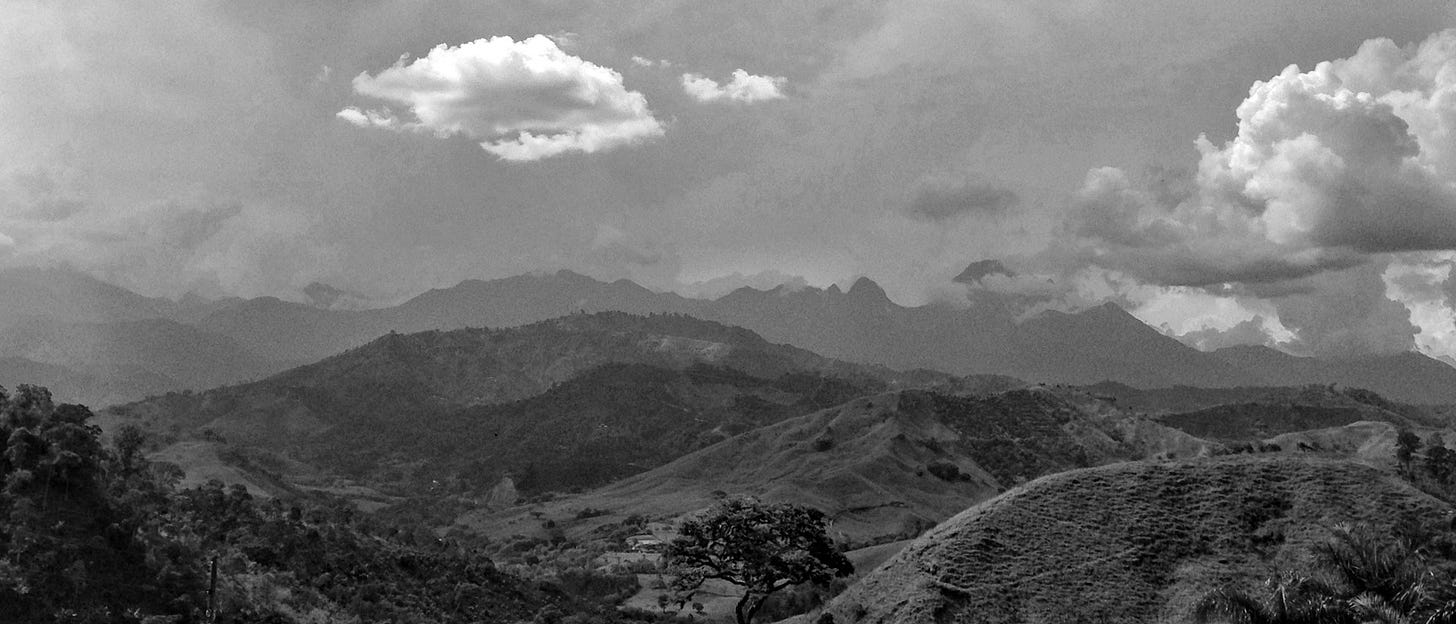Coffee News Roundup: Week Ending May 28th
This week, Brazilian producers look to renegotiate contracts after the price of coffee rises; the DRC needs help following a deadly volcano; and shade-grown coffee might be key to combating leaf rust.
It’s another weekend, and that means another Coffee News Roundup. It’s also Memorial Day Weekend here in the States, which means an extra day off for those lucky enough to receive it. Enjoy it, and be nice to the baristas you encounter on your excursions.
Now, let’s look at the news.
Brazil Farmers Seek Higher Prices On Pre-Sold Coffee As Deficit Looms - Via Reuters
The drought in Brazil, along with other factors including shipping issues and lower yields in other countries, has pushed the commodity price of coffee to a four-year high, and led some Brazilian producers to attempt to renegotiate their contracts with exporters and traders.
Producers who entered into contracts before the drought are now seeing their coffee worth a lot more due to the spike in prices while production has dropped due to, you guessed it, the drought. Traders, on the other hand, are not open to negotiating: “We had farmers or their lawyers calling, asking for renegotiation. We said we can’t change the terms now,” said one—notably anonymous—trader.
In fact, this piece almost solely features the words of anonymous exporters and traders, with one short quote at the end from a (named) farmer’s union chief. The focus of the piece is on the losses that traders will suffer if they renegotiate their contracts with producers, rather than the losses producers are facing from lack of yield and the crippling drought.
People In DRC Coffee Lands Need Help As Hundreds Of Thousands Flee Volcano - Via Daily Coffee News
Last week’s eruption of Mount Nyiragongo near the city of Goma in the Democratic Republic of Congo killed at least 31 and displaced hundreds of thousands, with evacuations continuing after a potential second eruption was predicted. At least 17 villages have been destroyed, and the UN estimates that upwards of 400,000 people need help after the evacuation.
Goma is also “home to the majority of eastern DRC’s coffee processing capacity and there are thousands of coffee producers with farms spanning North and South Kivu who depend on the commercial hub,” according to Kevin Wilkins of the Élan RDC project.
“Immediate funds are needed for aid and supplies for internally displaced people,” Heller Evanson of Atlas Coffee Importers said in a letter that was shared with Daily Coffee News. “We cannot overstate the seriousness of the current situation for this region.”
On the Ground, a DRC-focused non-profit started by Higher Grounds Trading founder Chris Treter, has launched a campaign to help fund relief efforts.
Shade-Grown Coffee May Be Key To Fighting Leaf Rust - Via Sprudge
Shade-grown coffee is, by and large, a good thing. It creates microclimates and encourages native plants and animals even if, as Sprudge points out, its marketing as “better” than full sun-grown coffee might be reductive.
According to researchers from Stockholm University working in Ethiopia, one thing shade cover does better is combat Hemileia vastatrix fungi, known to be the cause of the dreaded leaf rust that has decimated coffee production across the world.
The study focused on the relationship between H. vastatrix and another fungi, Lecanicillium lecanii, a hyperparasite that feeds on the leaf rust-causing fungi. The researchers found that the two thrived in different conditions: “Coffee leaf rust was more severe during the dry season whereas the hyperparasite was more severe during the wet season,” study co-author Beyene Zewdie said. “The rust can thrive in low moisture conditions whereas the hyperparasite favours areas characterised by moist and shaded habitats.”
So, the canopy used in shade-grown coffee can help encourage L. lecanii, and cut down on the use of pesticides that can have adverse effects on surrounding biodiversity.
‘Coffee-Making Robots’: Starbucks Staff Face Intense Work And Customer Abuse - Via The Guardian
First-person accounts of the realities of service industry work during the (ongoing, let’s not forget) pandemic are relatively rare. It’s good to hear what it’s like to work at Starbucks from the actual employees, as opposed to the CEO, and they generally don’t have a lot of nice things to say (this very Pourover did a similar interview feature with Starbucks baristas last year).
As it turns out, not much has changed.
“I give so much of my time and energy to this job and the compensation doesn’t measure up to the amount of work that we have to do,” said a shift supervisor in New York. “Starbucks definitely took this turn to becoming just another fast-food drive-thru. They want us to just be these robots that move fast.”
“Working during this pandemic has been a terrifying experience. It’s been almost unbearable and a few times, I’ve almost wanted to quit because it gets to the point we don’t get paid enough to deal with verbal abuse from customers on a daily basis,” said a barista in Maryland.
A Starbucks spokesperson at the end makes the point that the company offers good benefits, which is true (relatively), but we’re also still in the middle of a global pandemic in which service industry workers have been hailed as heroes without seeing much in the way of financial compensation for said bravery (also they didn’t ask to be heroes, they just work at Starbucks).
More Headlines
SCA To Host Second Coffee Retail Summit In June
U.S. Coffee Importer Sees Delay Of Up To 5 Weeks On Colombian Cargos
Probat To Raise Prices By 4.5% As Cost Of Steel Soars
The Week In Corporate Coffeewashing
Back in August of last year, this section was confused by the news that Hyundai Steel was getting involved in coffee recycling.
Now, nearly a year later, they’re “running an upcycling campaign to find new uses for discarded coffee grounds as part of its social contribution project,” according to a report in The Korea Herald.
To do this, the company is “putting up advertisements showing eco-friendly products made from coffee waste inside subway stations and on city buses operating in Incheon.”
As was the case last year, this story is very confusing. Why is Hyundai Steel, an enormous company that makes, well, steel products, so interested in coffee upcycling? What’s the link, apart from giving them some sustainability kudos to put on their website?
Is Coffee Good For You?
While coffee (specifically caffeine) might help you stay awake and aware, it doesn’t help with the cognitive decline brought on by sleep deprivation, according to a new study. The research, from Michigan State University and published in the Journal of Experimental Psychology,asked participants to complete simple cognition tasks following a night of no sleep and some coffee.
One, a simple awareness task, was handled relatively easily. The second task, however, involved more complicated “placekeeping”, and caffeine was less helpful in this regard according to lead author, Associate Professor Kimberly Fenn.
“We found that sleep deprivation impaired performance on both types of tasks and that having caffeine helped people successfully achieve the easier task,” Fenn said. “However, it had little effect on performance on the placekeeping task for most participants.”
"Caffeine may improve the ability to stay awake and attend to a task,” Fenn added, “but it doesn't do much to prevent the sort of procedural errors that can cause things like medical mistakes and car accidents.”
So there you have it—don’t go a night without sleep and then rely on a cup of coffee to get you through performing surgery.
What To Read
What Is A Caramel Macchiato? by Liz Clayton
Exporting Coffee During A Pandemic: Inside De la Gente by Jake Safane
Until next week, drink good coffee.






